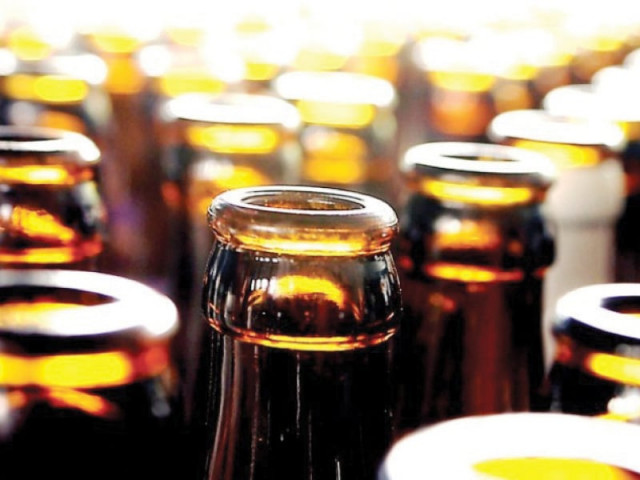Beverage industry: LHC strikes down capacity tax on a ‘technicality’
Advocate argued that companies fall under 3rd schedule of Sales Tax Act.

Instead of being imposed on retail sale of soft drinks, the capacity tax is levied at the plant’s potential to fill the bottles. PHOTO: FILE
The Lahore High Court (LHC) suspended a statutory regulatory order (SRO), which divided the beverage industry, caused embarrassment to the government and resulted in billions of rupees in tax loss.
Justice Syed Mansoor Ali Shah struck down SRO 649, which was introduced by the government on July 9, 2013, soon after coming to power.
Ironically, the case that dragged on for months and involved multiple enquiries, parliamentary debates and substantial media hype, culminated in a matter of mere technicality.
Senior advocate Salman Akram Raja, who represented Pakistan Fruit Juice Company, the bottler for RC Cola, said that aerated water companies fall under the third schedule of Sales Tax Act that does not require them to pay capacity tax.
Instead of being imposed on retail sale of soft drinks, the capacity tax is levied at the plant’s potential to fill the bottles. “It was introduced without any proper study. It was illegal,” Raja lamented.
The tax regime, which targets the capacity of the plant instead of actual sales, was levied at the behest of bottlers working for multinational companies Pepsi and Coke.
Advocate Raja said courts always try a case on the narrowest of grounds. “Bigger issues with capacity tax remain. But if a judge knocks out a case on something basic then there was no need to go into details.”
It was bitterly opposed by Pakistan’s local beverage makers, some of whom, like Pakola makers in Karachi, had stopped production.
Ranging between Rs1.175 million to Rs4.7 million per valve of the beverage plant depending on the origin of the machine, the tax followed a commitment on part of the two major industry players to increase revenue collection by 25%.
Up till December, the industry had actually paid just 21% of targeted figure.
This happened despite the fact the price of beverages increased by 22% to 28% but government didn’t get additional revenue as tax was fixed on per-spout basis. The Federal Board of Revenue (FBR) has not shared the actual figure of shortfall in tax collection.
According to FBR, the industry representatives, who assured it of increase in taxation, overstated the number of installed valves, managing to get the rate per valve fixed at a lower level.
Subsequently, the government raised the tax by 60% to 70% in absolute terms in February in a bid to make up for the revenue loss since the capacity tax was introduced in July 2013. But that prompted even the multinational companies to go to court.
The tax became a bone of contention since its introduction as local brands, which have smaller market share, faced immediate crunch.
Local companies and smaller bottlers say they have extra capacity and sales fluctuate according to seasonal demand.
While companies sought court’s help to block the new tax, many rolled back capacity by dismantling filling machines in fear of paying penalties.
Sales of Pakistan’s beverage industry increased 37% to Rs172 billion in 2012-13 over the previous year. In 2012-13, government collected Rs20.4 billion in taxes from the industry.
A detailed judgement on the case will be released in few days.
Published in The Express Tribune, May 20th, 2014.
Like Business on Facebook, follow @TribuneBiz on Twitter to stay informed and join in the conversation.



















COMMENTS
Comments are moderated and generally will be posted if they are on-topic and not abusive.
For more information, please see our Comments FAQ